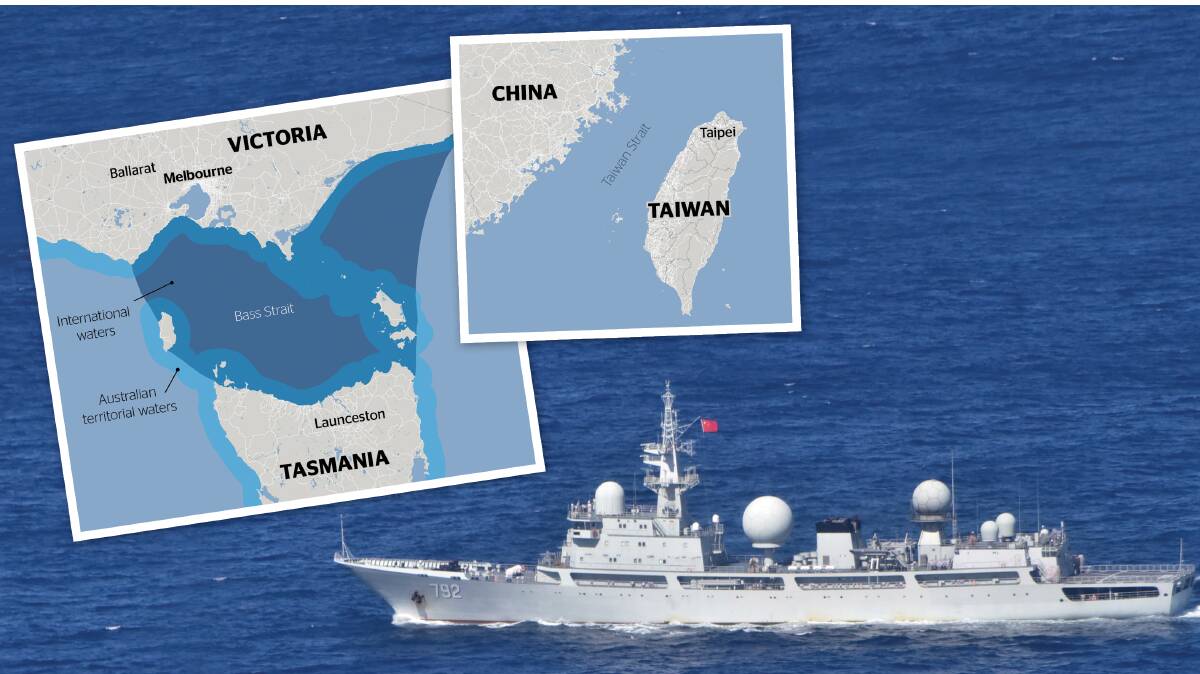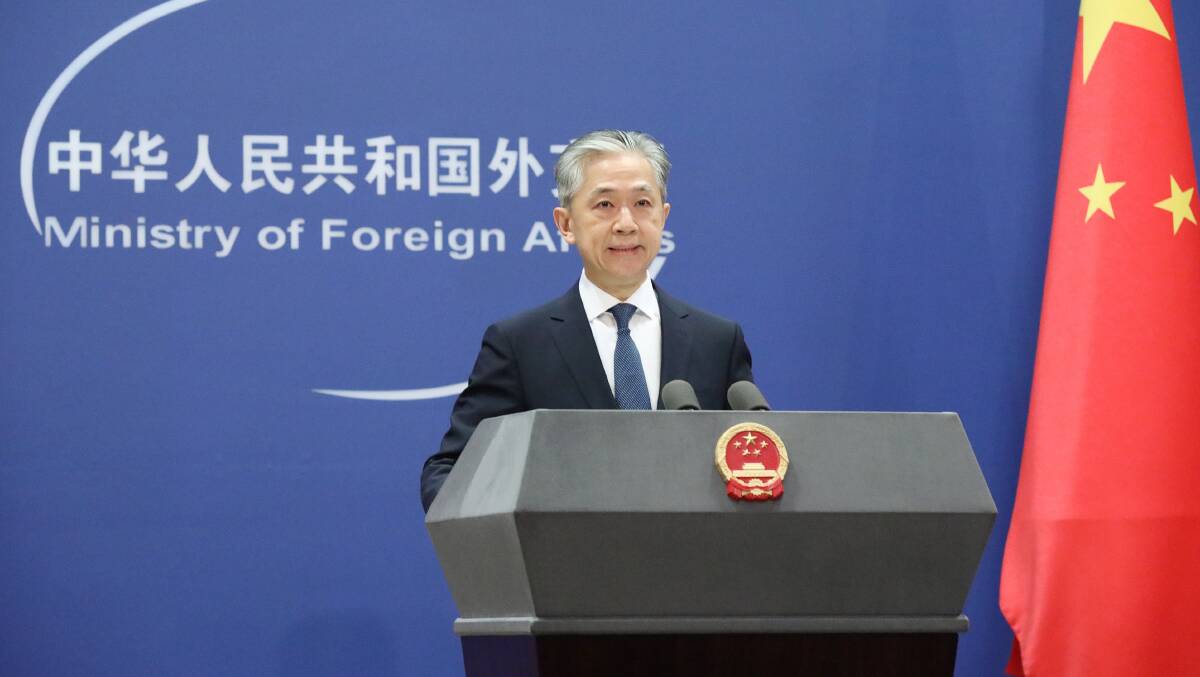
Now China says it owns the Taiwan Strait. Every time we turn around, it wants more.
In fact, the Taiwan Strait belongs to the whole world, but China has for many years acted as though the waterway was its territory, criticising other countries for sending warships there.
Its position has now become explicit. China "has sovereignty, sovereign rights and jurisdiction over the Taiwan Strait," says a spokesperson in Beijing.
This, no doubt, will be followed by more of China's step-by-step approach to getting what it wants, using violence when convenient.
Expect its ships, some now specially designed to withstand impacts, to crash sideways into foreign naval vessels in the strait with increasing frequency, and probably increasing force. Other countries will wonder whether they can keep accepting the cost of repairs and the risk of a ship sinking.
A map might suggest that Beijing's claim to the Taiwan Strait isn't unreasonable. The Chinese mainland is on its western side and Taiwan, which China also claims to own, is to the east.
At its narrowest, the strait is only about 130 kilometres wide.
If Australia can own 200-kilometre-wide Bass Strait, why can't China own the Taiwan Strait?
Actually, most of Bass Strait doesn't belong to Australia. China could send an aircraft carrier with a bunch of destroyers through it, if it liked, because a global agreement on maritime territory says so.
If we sent so much as a navy dinghy through the Taiwan Strait, we could probably expect another round of trade sanctions from Beijing.
The agreement is the United Nations Convention on the Law of the Sea, which has the excellent aim of defining who owns what so disputes don't lead to wars. Australia, China and most of the rest of the world have signed up.
Under the convention, territorial waters extend just 12 nautical miles, or 22 kilometres, from each country's land, not counting artificial islands or uninhabitable rocks.
An exclusive economic zone goes farther, out to 370 kilometres. But in its EEZ, a country can control only such activities as fishing and extracting oil.
Our 22-kilometre territorial entitlement hardly gives us all of Bass Strait.
Apart from mainland and Tasmanian coastal waters, most of our territorial sea in the strait is around islands stretching across the eastern half. So the majority of Bass Strait belongs to the world.
China doesn't have such a string of islands across the Taiwan Strait, so that waterway is basically all international.

One of Beijing's tricks in trying to extend control over the strait - and the South China Sea - has been to say that it has something like territorial rights beyond territorial waters. Helpfully for China, it isn't alone in doing this.
"What we have seen is a gradual, creeping attempt by some countries, including China, India and Brazil, to make their EEZs more akin to territorial sea," says Donald Rothwell, a professor of international law at the Australian National University in Canberra. "The most obvious example of this is insisting that foreign warships can navigate through the EEZ only with permission."
China has now leapt beyond that stage, however. Its latest statement amounted to declaring the strait to be Chinese territory. The US promptly rejected the claim.
Awkwardly, the US has not signed the UN convention, but it not only conforms to the rules but is in fact their chief enforcer. So it sails warships through the South China Sea and the Taiwan Strait partly to say it can.
But it has another reason. Like any nation with capable armed forces, it listens to military radio transmissions of countries that could be wartime enemies. The closer an intelligence ship or aeroplane gets to a transmitter, the better the signal reception.
Radio eavesdropping is also a major but rarely discussed task of Australian submarines and some of our aircraft - and they surely do it when they're close to China.
But all this cuts both ways. If we can go close to China, China can come close to us.
The huffing and puffing we see in the media when a Chinese warship approaches Australia is sheer nonsense. Such vessels have a perfect right to be there.
MORE AGE OF THE DRAGON:
Peter Dutton made a hypocrites of us when he objected to the arrival of Chinese intelligence ship Haiwangxing off WA just before the election. As defence minister at the time, he called this an "aggressive act" - just the sort of language that China uses when telling other countries to clear off.
The ship moved within about 90 kilometres of Exmouth, obviously because we have a submarine communications station and a satellite-watching radar there.
So it was in our EEZ, but not in our territorial waters.
That said, ships also have a right of "innocent passage" through foreign territorial waters if they're doing no harm.
That's one reason why Chinese warships would be entitled to pass through the Bass Strait. Another is that Australia concedes that both Bass and Torres straits are international waterways - passages that other countries need for sailing between the international seas on each side.
What if a Chinese intelligence ship simply paraded along our coast, just a few kilometres offshore? Would that be acceptable?
"That would have to be Australia's position," says Rothwell.
After all, we stand by the international agreement.
A Chinese ship would, in fact, be quite entitled to sit off the end of the runway of our main fighter base, RAAF Williamtown, at Newcastle, happily collecting radio signals.
But I bet we wouldn't try doing that off a Chinese airbase.
- Bradley Perrett was based in Beijing as a journalist from 2004 to 2020.


